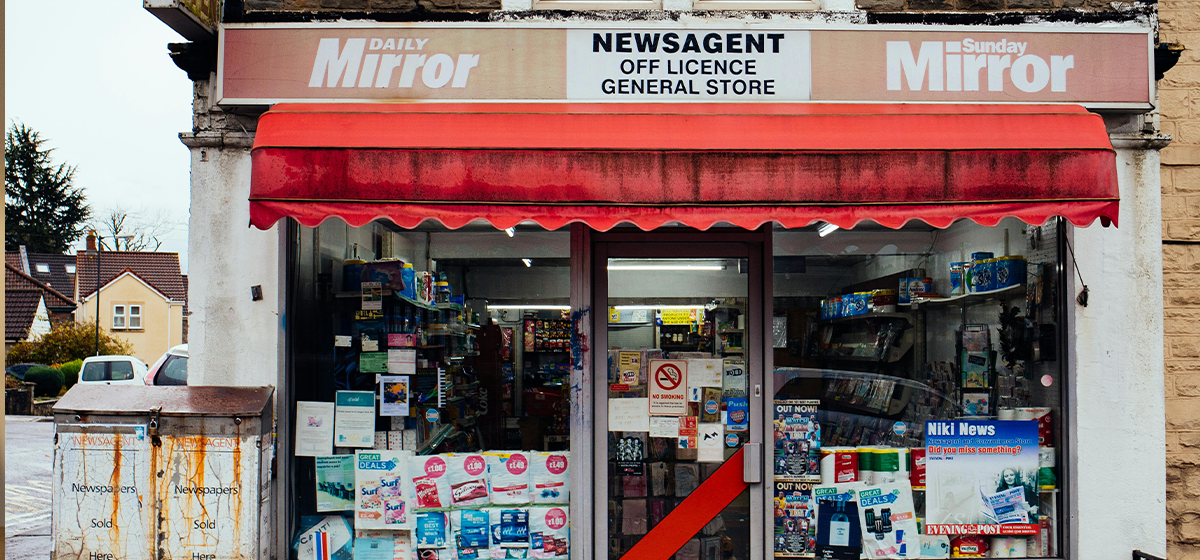Opening your convenience store for the first time marks the next step in your business career. Before we get to that point, you’ll need to secure a location if you want to join the 9,002 new shop openings.
One point you’ll have to think about is whether you’ll want to buy a freehold or a leasehold store. Of course, the former means you own the asset and the land under it, but this isn’t always financially possible or flexible enough.
There’s no right or wrong choice – only your choice.
That’s why this guide will go into the pros and cons of buying a leasehold vs. a freehold on your corner shop.
The difference between buying a freehold vs. a leasehold convenience store
The main difference between buying a corner shop freehold or leasehold is ownership. Purchasing the freehold means you own the property and the land underneath it. It’s an asset you can add to your balance sheet, and, like any asset, the value of it can grow or fall over time.
Leaseholds in business work slightly differently from, say, buying a leasehold flat. In business, you’re not buying the property or the land but the business. The lease is for a set period, and you pay to maintain the lease in the meantime. The original landlord still owns the property and the land underneath.
Naturally, you’ve got significant advantages and disadvantages to each. With convenience stores being one of the few growth industries in the UK, with closures at a decade-low, it’s time to think carefully about what makes the most sense for you.
Pros and cons of buying a freehold convenience store
Freehold convenience stores are owned in their entirety by you. In other words, you’re beholden to nobody, and anything you want to do is within your power. It’s a level of control you just don’t get with a leasehold.
So, what are the pros and cons of this approach?
Pros of buying a freehold convenience store
- Complete Ownership – You own everything, including the land the building is on. The advantage of total ownership is obvious because there’s no need to worry about landlords or lease terms.
- No Rental Payments – With no lease to consider, you’re paying no monthly rental costs. This lowers your overhead and gives your corner shop a better chance of succeeding.
- Extra Stability – Don’t discount what the extra stability can bring. Flourishing businesses can be kicked out by landlords, changing lease terms and rent increases at any point. Not so when you own the freehold.
- More Control – Without any lease terms, you’ve got ultimate power over your shop. Renovate, sublet and expand to your heart’s content (as long as you’re not breaking planning permission).
- Asset for the Future – Even if your corner shop only makes a modest profit, plenty of entrepreneurs make considerable amounts just because of increasing property values. Plus, if you get tired of running your shop, you can lease it out to someone else.Finally, don’t forget that since you’ve got an asset in full, this provides opportunities for future leveraging. Want to buy another property and expand your empire? Owning a freehold property can act as collateral to secure any future financing.
Cons of buying a freehold convenience store
- Capital Needed – Leaseholds are substantially cheaper than freeholds because you’re not buying land and property. If you want to go for a freehold, you’ll need the capital to back it up.
- Your Responsibility – All the responsibility falls to you, including repairs, insurance, upkeep and compliance, which can create its own headaches.
- Liquidity Issues – Tying capital up by buying a freehold comes with an opportunity cost. If you’re not independently wealthy, this could tie you to a single convenience store for years to come.
Find the Right Convenience Store Business For You
Why due diligence is so important when buying a business
Pros and cons of buying a leasehold convenience store
Taken at face value, it might appear as if freeholds are the only way forward, and leaseholds are for people who can’t rustle up the money to buy the freehold, but that’s not true. Plenty of entrepreneurs go the leasehold route because it gives them the extra flexibility and liquidity to achieve faster growth.
Let’s go into the pros and cons of leasehold corner shops in detail.
Pros of buying a leasehold convenience store
- Lower Cost – Leaseholds are typically a fraction of freeholds, meaning you’re only buying the business but not tying up your capital in the property. This can allow you to take advantage of other opportunities that might crop up later.
- Flexibility – You aren’t tied to a leasehold forever. At the end of your lease, feel free to walk away, relocate, or opt for a fresh direction.
- Landlord Support – Some leaseholds place certain responsibilities on the landlord. For example, landlords are usually responsible for covering any structural maintenance. Again, it’s something else you don’t have to worry about.
Cons of buying a leasehold convenience store
- Rental Payments – Leaseholds mean regular rental payments. Your rental payments are an ongoing expense eating into your profits. Furthermore, your landlord can increase your rent over time.
- Less Control – Lease terms offer little to no flexibility, meaning you’ll have to get permission before you change anything significant. If you want to sublet, renovate, or even redecorate, your landlord could put a stop to it.
- Expiry Risk – Freeholds are set in stone, but leaseholds are only valid until the end of the lease. Once the lease is up, you could be forced to agree to unfavourable renewal terms. Worse still, your landlord has the right to refuse to renew your lease for any reason, including no reason.

Can you buy the freehold of a leasehold convenience store?
Buying the freehold of an existing leasehold is another route you can go down if you want to enjoy the booming convenience store business through a less conventional route. Naturally, expect to pay significantly more to obtain the freehold, as well as find a landlord who’s willing to sell.
Note that any existing clients who have purchased the leasehold remain unaffected if freehold ownership changes. For example, you can’t buy the freehold and kick the existing leaseholder out immediately.
Will having or buying the freehold of a convenience store add value?
Freeholds nearly always add value to your business – with commercial properties, this can be as much as 30%. Most of the value comes from the fact that you’re taking advantage of increasing property and land prices, which in the UK has seen a near-constant upward trajectory for nearly 20 years.
You also benefit from the value of no longer paying rental payments as a leaseholder. Rather than throwing dead money at a landlord to maintain your lease, those payments can be plunged back into your business.
Regardless of your decision, there’s a business opportunity for everybody. If you’re searching for a freehold or leasehold convenience store to buy, Cogogo is ready to help. Browse our database of convenience stores up for sale and see what your options are now.

